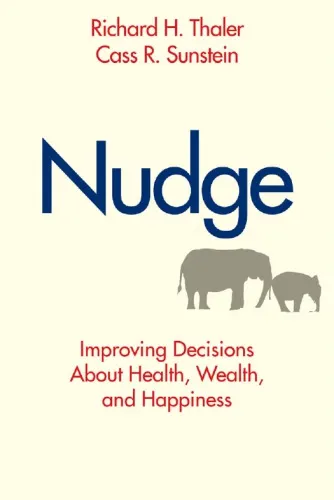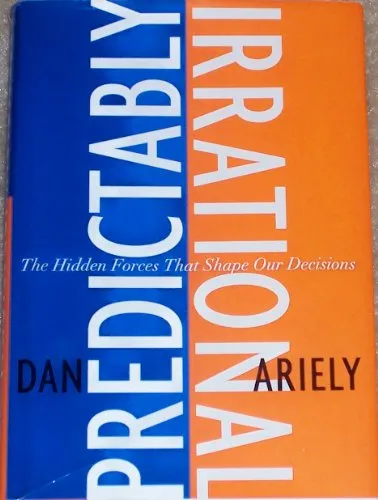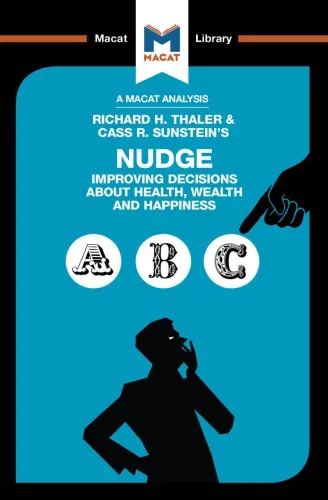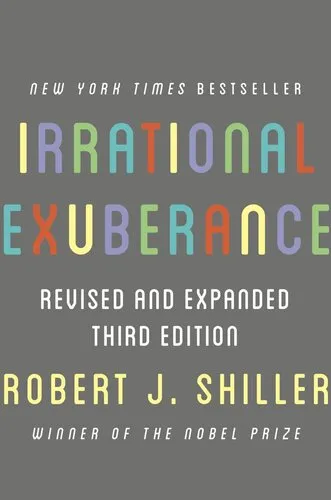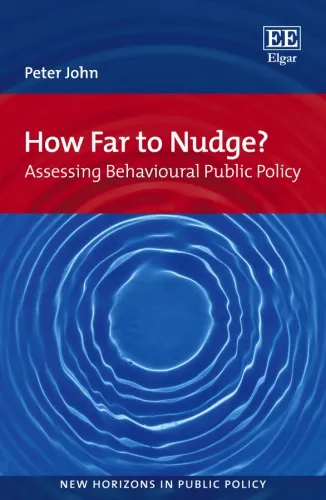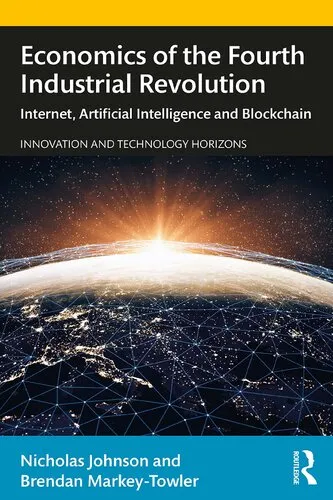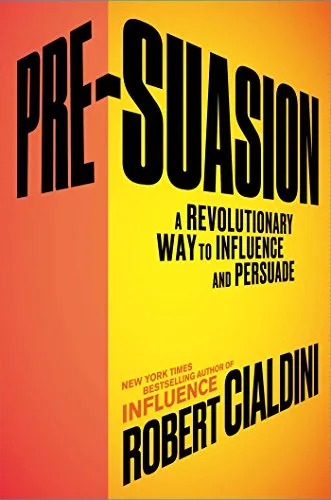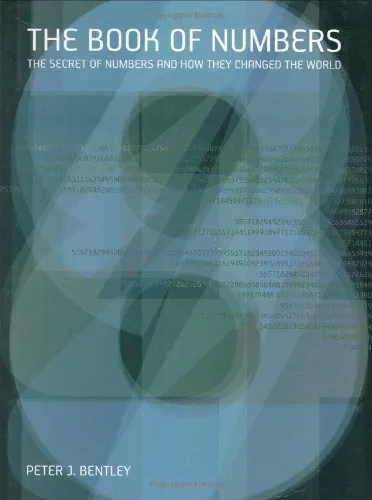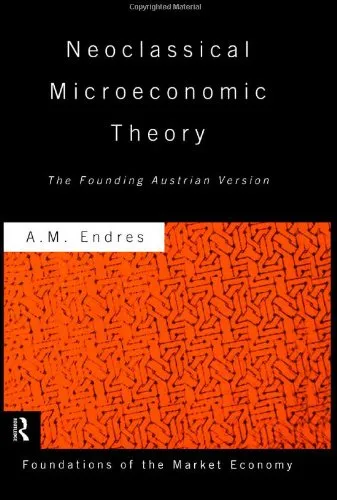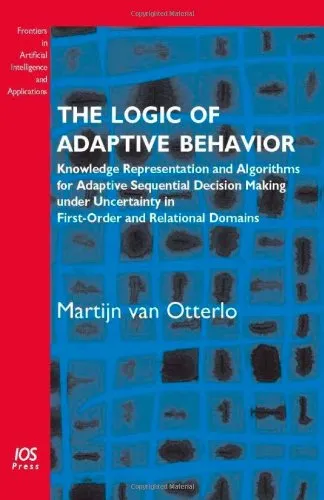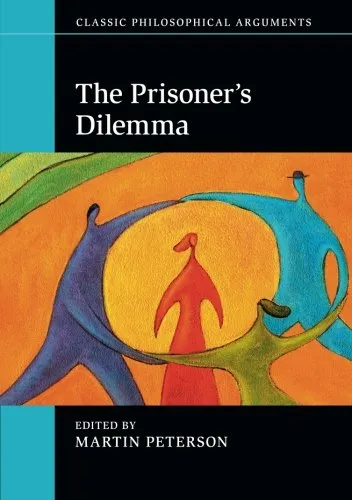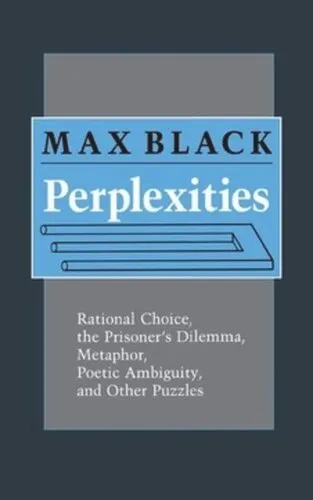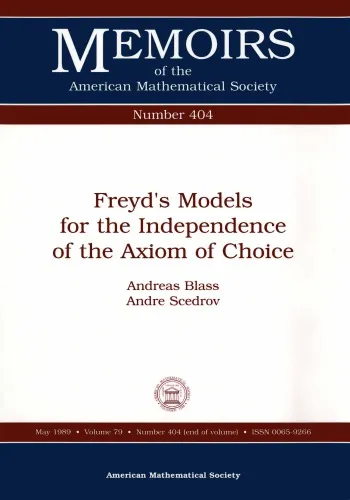Nudge: improving decisions using the architecture of choice
4.5
بر اساس نظر کاربران

شما میتونید سوالاتتون در باره کتاب رو از هوش مصنوعیش بعد از ورود بپرسید
هر دانلود یا پرسش از هوش مصنوعی 2 امتیاز لازم دارد، برای بدست آوردن امتیاز رایگان، به صفحه ی راهنمای امتیازات سر بزنید و یک سری کار ارزشمند انجام بدینکتاب های مرتبط:
معرفی کتاب 'Nudge: improving decisions using the architecture of choice'
کتاب 'Nudge' به قلم سانستین و تیلر، یک بررسی مختصر و تاثیرگذار در مورد چگونگی شکلدهی به تصمیمات انسانی از طریق تغییرات کوچک در محیط تصمیمگیری یا به اصطلاح architecture of choice ارائه میدهد. این کتاب نشان میدهد که چگونه حتی جزئیترین تغییرات میتوانند نتایج بزرگی را در پی داشته باشند. نویسندگان این اصطلاح را ابداع کردهاند که بیانگر توانایی "هل دادن" در جهت بهبود تصمیمات افراد است.
خلاصهای از کتاب
'Nudge' به بررسی جنبههای مختلف تصمیمگیری انسان میپردازد و چگونگی بهرهبرداری از مفاهیم behavioral economics را برای بهبود انتخابها در زندگی روزمره و سیاستگذاریها توضیح میدهد. یکی از مباحث کلیدی کتاب، تئوری "پیشفرض"، نشان میدهد که مردم غالباً تصمیم میگیرند در همان حالت پیشفرض باقی بمانند، و تغییراتی که مستلزم تلاش ذهنی یا خلاقیت است، سختتر از لحاظ روانی به وقوع میپیوندد.
نویسندگان بیان میکنند که استفادهی هوشمندانه از Nudge میتواند نتایج مثبتی داشته باشد، از جمله بهبود سلامت عمومی، افزایش پسانداز برای بازنشستگی، و حتی حافظت از محیط زیست. همچنین، تاکید میکنند که این تغییرات باید به گونهای طراحی شوند که انتخابهای آزادانه افراد حفظ گردد و تاثیرگذاری آنها کاملاً شفاف باشد.
نکات کلیدی کتاب
- استفاده از پیشفرضها میتواند به طور قابل توجهای رفتارها را بدون محدود کردن انتخابهای افراد تغییر دهد.
- طراحی دقیق محیطهای تصمیمگیری میتواند به ارتقای نتایج مطلوب فردی و اجتماعی کمک کند.
- مفهوم "هلدهی" باید با توجه به اخلاقیات و احترام به انتخابهای آزادانهی افراد بهکار گرفته شود.
نقلقولهای معروف از کتاب
مردم به گونهای تصمیمگیری میکنند که از کمترین تلاش ذهنی برخوردار باشد، به همین دلیل پیشفرضها بسیار تاثیرگذارند.
یک طراحی خوب میتواند به تغییر دنیا به سوی بهتر حرکت کند، اما تنها وقتی که اخلاقیات نیز رعایت شوند.
چرا این کتاب مهم است؟
'Nudge' در زمانی منتشر شد که علاقه به روانشناسی اقتصادی و رفتار انسانی در حال افزایش بود. این کتاب توانست با ایدههای نوآورانهاش، بحثهای بسیاری در حوزههای مختلف از جمله اقتصاد، سیاستگذاری عمومی و حتی بازاریابی باز کند. اهمیت آن در این است که به تصمیمگیران و خوانندگان عادی نشان میدهد چگونه میتوان با تاثیرگذاری کوچک، تفاوتهای بزرگ ایجاد کرد. به عبارت دیگر، در دنیای پیچیدهی امروز، هلدهیهای کوچک میتوانند به پیشبرد اهداف فردی و جمعی بپردازند.
Introduction to "Nudge: Improving Decisions Using the Architecture of Choice"
Written by Cass R. Sunstein and Richard H. Thaler, "Nudge" is a groundbreaking exploration of behavioral economics, focusing on how subtle adjustments in the way choices are presented can significantly influence decision-making. Published in 2008, this book has become a seminal work in the fields of behavioral science and public policy.
Detailed Summary of the Book
"Nudge" reveals that individuals often make choices that deviate from their best interests due to cognitive biases and social influences. Sunstein and Thaler introduce the concept of 'choice architecture,' emphasizing how the organization of choices—the default options, framing effects, and presentation order—profoundly affects our decisions. The authors propose 'nudging' as a non-intrusive method to guide people towards better choices without restricting freedom of choice. They argue for 'libertarian paternalism,' a philosophy that endorses designing systems that foster welfare-enhancing options while allowing individuals to choose freely.
The book is filled with real-world examples and research findings, demonstrating how nudges can optimize outcomes in diverse areas such as healthcare, personal finance, and education. From defaults in organ donation systems to the strategic placement of food in cafeterias, these subtle changes in choice architecture can lead to significant improvements in individual and collective well-being.
Key Takeaways
- Choice architecture is pivotal in shaping decisions, often in non-obvious ways.
- Nudges can help overcome common cognitive biases like present bias and loss aversion.
- "Libertarian paternalism" advocates for guiding better decisions while preserving choice freedom.
- Implementing small changes in how choices are presented can lead to large positive impacts.
- Understanding human behavior can significantly enhance policy-making and personal decision-making strategies.
Famous Quotes from the Book
"The false assumption is that almost all people, almost all of the time, make choices that are in their best interest or at the very least are better than the choices someone else would make for them."
"By knowing how people think, we can make it easier for them to choose what is best for them, their families, and society."
Why This Book Matters
In an era overflowing with choices, "Nudge" offers invaluable insights into how small changes in choice design can lead to better decision-making outcomes. The book bridges the gap between psychology and economics, providing both a theoretical framework and practical tools for application in various fields, including business, public policy, and personal development. Its widespread influence is evident in governmental and business practices worldwide, as institutions adopt nudging tactics to promote healthier, smarter, and happier lives.
Nudge's importance also lies in its accessibility. It distills complex behavioral economic theories into clear, practical guidance, making it essential reading not just for policymakers and economists, but for anyone interested in understanding the subtleties of human decision-making and how to harness this understanding to foster positive change.
دانلود رایگان مستقیم
شما میتونید سوالاتتون در باره کتاب رو از هوش مصنوعیش بعد از ورود بپرسید
دسترسی به کتابها از طریق پلتفرمهای قانونی و کتابخانههای عمومی نه تنها از حقوق نویسندگان و ناشران حمایت میکند، بلکه به پایداری فرهنگ کتابخوانی نیز کمک میرساند. پیش از دانلود، لحظهای به بررسی این گزینهها فکر کنید.
این کتاب رو در پلتفرم های دیگه ببینید
WorldCat به شما کمک میکنه تا کتاب ها رو در کتابخانه های سراسر دنیا پیدا کنید
امتیازها، نظرات تخصصی و صحبت ها درباره کتاب را در Goodreads ببینید
کتابهای کمیاب یا دست دوم را در AbeBooks پیدا کنید و بخرید
1364
بازدید4.5
امتیاز0
نظر98%
رضایتنظرات:
4.5
بر اساس 0 نظر کاربران
Questions & Answers
Ask questions about this book or help others by answering
No questions yet. Be the first to ask!
